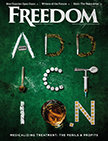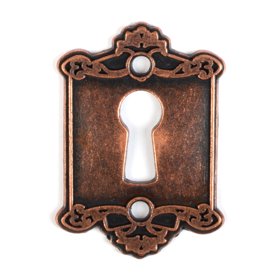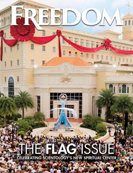If you ask nearly anyone involved in educating children, they will agree that unless a kid knows how to successfully study, no real learning can take place.
This is the idea behind Study Technology, or Study Tech, a learning method developed more than 40 years ago by L. Ron Hubbard as an essential component of education and literacy. Offered through the secular nonprofit Applied Scholastics International, it is a universally applicable discipline used in schools, learning centers and tutoring groups around the world.

Study Tech postulates that a basic impediment to learning is not knowing how to learn, or study. It identifies the three barriers to study and provides effective methods for surmounting them, thus opening the door to effective learning.
“It’s really a common-sense methodology,” says Susie Cooper, who teaches at a high school in Orange, California. “Any teacher could benefit from it. It helps make the vocabulary and the meaning of words more easily understood.”
The Applied Scholastics network has trained more than 135,000 educators in 72 nations in Study Technology. Caroline Kyhl-Boswell has herself trained more than 5,000 teachers and professors in the methodology, and says that Study Tech was responsible for her becoming the top woman in her age bracket across the United States in the 1,000-meter event at the 2013 Indoor Speed Skating National Championships.
“No way could I have accomplished that without what I learned using Study Tech,” Kyhl-Boswell says. “I was able to overcome the advantage held by competitors who had decades more experience than I did.“
But it was while she was an assistant professor of education at Texas Lutheran University, while concurrently working as a math specialist for a group of seven Texas schools in a rural district, that Kyhl-Boswell saw perhaps the best example of the utility of Study Technology.
Kyhl-Boswell took a group of teachers under her wing whose students had been failing on the annual Texas state tests even as they were pushed forward to the next grade level. Things slowly began to turn around once Kyhl-Boswell incorporated Study Tech. Schools from all over the state suddenly started calling her, asking if she could come to give workshops to their teachers.
Then came the year that Kyhl-Boswell worked diligently with those same teachers whose pupils always flunked the standardized exam. Using Study Tech specifically to improve their math skills, the results were nothing short of astonishing.
“Before, the most anyone had seen in mathematics was a 5- to 7-point gain in any given year,” she recalls. “But we saw gains of between 17 and 23 points in math. It caught a lot of attention because, I mean, no one had ever seen improvement even close to that in the history of these schools. And more than anything I did, the credit all goes to the genius of Study Tech.“
You don’t need to convince Gerry Ferguson of the Study Tech benefits. Ferguson thought he would always need to cover up that he was illiterate. Working in construction, he would stay up nights memorizing blueprints to compensate for his inability to read. When he became a chef, he would ask his superiors to walk him through recipes so he didn’t have to admit he couldn’t read the cookbook or instructions.
Then Ferguson had an opportunity to learn using Study Tech. His real issue was immediately diagnosed: a massive amount of misunderstood words. As described in detail in Study Tech, misunderstood words are the most important barrier to study.
“Within a year, I was reading tons of stuff,” he says. “It was like I’d been walking around with my hands over my eyes trying to see the world through my fingers. After using Study Tech, my hands lifted away and I could look at the world clearly.” Today, Ferguson manages the buildings and grounds of the 100-acre Applied Scholastics International campus at Spanish Lake near St. Louis, Missouri.
Applied Scholastics offers tutoring and general academic help to students of all ages, free of charge, through its network of community learning centers. Worldwide, its after-school programs supplied more than 1 million tutoring hours in 2013, according to Chris Gerson, the organization’s senior vice president.
“We can quickly find where the train went off the rails,” Gerson says. “Sometimes it happens many years earlier. Whatever it is, we can fix it and bring it forward to fill in the gaps. We handle the immediate triage. If the child is going to flunk math, they can come in the door and we can keep that from happening.”
Colin Taufer has been headmaster at the Delphi Academy of Florida in Clearwater since 2002, and a faculty member since 1992. What most appeals to him about Study Tech, Taufer says, is that the school’s 165 students are able to move at their own pace rather than on the fixed timeline of public schools.
“Learning is a constant, time a variable,” he says. “It makes a lot more sense for learning to be competence-based rather than time-based. Because at the end of the day, it doesn’t really matter how long it takes you to master material as long as it is ultimately learned.”
Taufer uses the metaphorical example of running a marathon. “Everyone who completes it is ecstatic for having finished it,” he emphasizes.
“And yet everyone has completed it in a different time. The Kenyan runner finished in a little over two hours, while the 40-year-old dad with three kids made it in four hours. Yet their sense of accomplishment is equal. It’s the same way in education.”






























